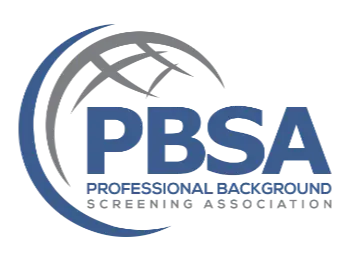Social media has become an integral part of our lives. It shapes how we communicate, consume information, and engage with others.
With billions of users and an overwhelming amount of content generated every second, automated Social Media Checks increasingly rely on artificial intelligence (AI) for content moderation and adverse behavioural findings. However, the growing influence of AI in these areas raises important ethical consequences.
In this blog post, we will delve into the ethical implications of using AI for Social Media Checks. We will explore the potential consequences of automated content moderation, the risks of over-policing or censorship, and the vital role of a Social Intelligence team in contextualising AI findings.
AI-Driven Content Moderation: Balancing Promise and Consequences
AI has undoubtedly revolutionised content moderation on social media platforms. Automated systems can rapidly detect harmful content such as hate speech, graphic violence, and explicit materials. This is conducive to safer online spaces and improved brand reputation.
However, AI content moderation is not without consequences. Machine learning algorithms can struggle to accurately interpret context, leading to false positives and false negatives. Innocent content may be mistakenly flagged as harmful, resulting in unfair censorship, while harmful content may evade detection. Striking the right balance between free speech and safety becomes an ethical challenge in this context.
The Human Touch: Importance of a Social Intelligence Team
While AI can be powerful in flagging potential issues, it lacks the ability to fully comprehend complex human emotions, cultural nuances, and rapidly evolving contexts. To address this limitation, Social Media Check organisations like SP Index must invest in a Social Intelligence team comprised of human moderators who can interpret these AI findings within context.
A Social Intelligence Team plays a crucial role in reviewing flagged content, understanding its cultural context, and highlighting content that may not align with organisational policies and ethical principles. They can bridge the gap between AI’s capabilities and the complexities of human communication, thereby reducing the risk of unfair censorship and promoting inclusivity.
SP Index’s Social Intelligence Team receives regular objectivity training, meaning any personal views they hold do not become obstacles to their research. To further reduce the risk of bias, we implement stringent QA and audit measures for our enhanced background checks.
Social Media Check Myths
Many of the myths surrounding Social Media Checks relate to the ethics of these screenings. Today, we’re going to bust some online background check myths to prove that there is no need to sacrifice ethics when using a skilled Social Intelligence Team.
- Social Media Background Check services always include a social media handle checker
SP Index employee background checks do not rely on social media name checks. We view this as a potential invasion of privacy.
Moreover, our efficient Social Intelligence Team does not need to request usernames to perform high-quality research.
- In-house teams are just as objective as industry experts
It’s imperative to steer clear of unconscious bias when performing a Social Media Background Check for employment.
This is undoubtedly much more challenging for in-house teams, who may not be trained in how to perform a secure UK Social Media Check. Opting for in-house social media searches comes with potential risks of bias throughout the hiring process.
- All Social Media Background Check companies analyse private messages
SP Index strictly uses open-source intelligence to gain a realistic picture of each candidate. OSINT tools do not allow access to private content, such as private social media accounts or private messages.
Conclusion
As AI-driven Social Media Checks become more dominant, understanding the ethical implications of this technology is paramount. While AI offers great promise in enhancing content moderation and creating safer online spaces, it also presents challenges in terms of accuracy, and potential biases.
As the leading Social Media Background Check UK provider, we strongly believe that we hold the ideal solution: a powerful Social Intelligence Team that uses select AI tools for improved efficiency.
In other words, our fast background checks are not solely driven by AI. We have assessed the risks of both AI-led and human-led content and found the perfect balance for objective background checks that are fully compliant.
Contact Us
Here at SP Index, we embrace the importance of a Social Intelligence Team to complement AI, and we strive for a balanced approach that respects free speech, protects users, and organisations.
To find out more about how SP Index combines a thoughtful and ethical approach to AI-driven Social Media Checks, get in touch today:
Telephone: 0800 468 1688
Email: info@sp-index.com
Join us on LinkedIn here to stay updated with the latest insights, trends, and exclusive content.


